
Edward Zellem is a U.S. Navy Captain. He is known for his work inside Afghanistan's Presidential Palace and for authoring two bilingual collections of Afghan proverbs, "Zarbul Masalha: 151 Afghan Dari Proverbs" and "Afghan Proverbs Illustrated." Zellem wrote the books to "show how Afghan proverbs demonstrate our common humanity and the humanity of Afghans, and to share the proverbs' lyricism, richness and deep meanings with the rest of the world" He is a member of the International Association of Paremiology (AIP-IAP), which is based in Tavira, Portugal. It is a nonprofit cultural institution dedicated to the international scientific study of proverbs, and is the only Association of its type in the world.
FA: How would you describe Global Impact’s charity work?
EZ: First of all, let me say thank you for the opportunity to talk about Global Impact. It is a great organization with a great mission, and it’s a privilege to support any way I can.
Your question is a big one because Global Impact has been supporting international charity and development work for nearly 60 years. It has more experience in this than any other organization of its kind. During that time Global Impact has collected and distributed more than 1.5 billion dollars for people in need. That is an amazing and humbling figure for any nonprofit.
The best way to describe Global Impact’s charity work is its mission statement: To assure help for the world’s most vulnerable people. That sums it up in just a few words.
The second way I would describe Global Impact’s work is brokering global philanthropy. Another way to say that is sustainable philanthropy. I like that term. It describes a crossroads where business and charitable interests meet, and where everybody benefits. It’s a very effective approach and Global Impact excels at making it happen.
FA: What is Global Impact’s greatest strength?
EZ: I think Global Impact’s greatest strength is in the area of brokering global philanthropy. Global Impact excels at guiding private-sector businesses through the challenging terrain of international development and philanthropy.
Successful companies know that corporate social responsibility is a good thing for their financial bottom line and ultimately for their investors. These companies use business models that get the most “bang for your buck,” which is partly why they are successful in the first place. They want to play in high-performance environments with gain. This same approach carries over to their corporate social investing.
The world of international charity, development and nonprofits can be a complex and time consuming maze for corporations to navigate. Global Impact’s greatest strength is providing them with fully integrated services to meet their specific philanthropic goals and interests. That’s why many Fortune 500 corporations like JPMorgan Chase, United Airlines, and Cisco Systems are Global Impact partners. Global Impact helps them navigate international philanthropy in the most effective way. The result is maximum “bang” where everybody benefits.
Global Impact president and CEO Scott Jackson talked a lot about this in his recent interview with me for Film Annex.
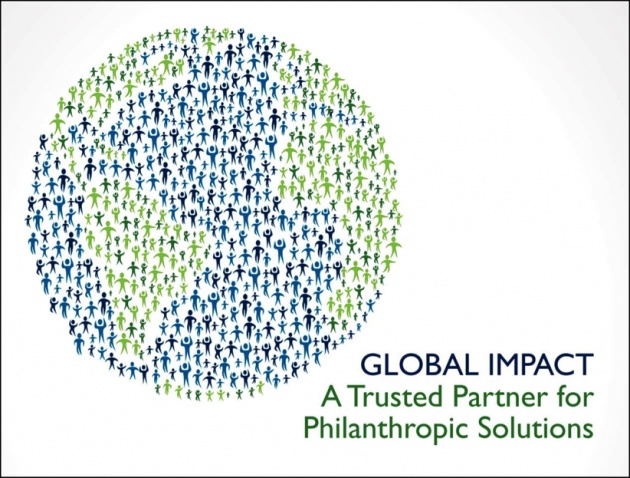
FA: What motivated you to join the Board of Directors? What about your personal background, interests and experience helps you advance the mission of Global Impact?
EZ: I have done volunteer charity and relief work for as long as I can remember. My mother, Sally Zellem, was the executive director of a Red Cross chapter in Pennsylvania for 28 years. When I was a young boy, she would take me to help her at Red Cross relief efforts: disasters, bloodmobiles, fundraisers, many things. It was exciting because I felt like I was making a difference. I even met my future wife when we were both volunteers at a Red Cross disaster center in Illinois during the great Mississippi River floods of 1993. Those floods were among the most costly and devastating floods in United States history. It made a big impression on me to meet and help people who had lost everything but their lives in that flood.
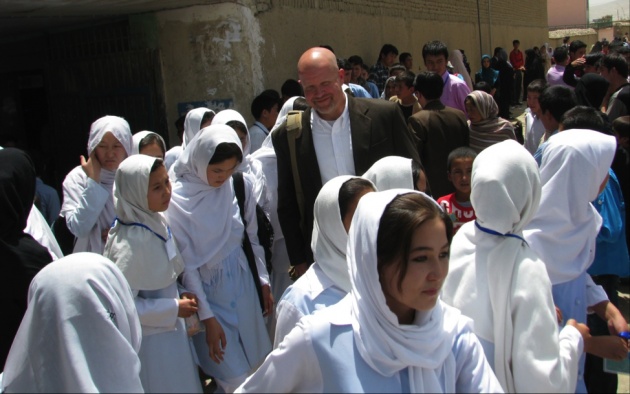
Since then I’ve spent 26 years in the United States Navy and traveled the world. I have been face to face with extreme poverty and tragedy in many places. Some Americans might find it hard to understand the depth of need in these places without seeing it up close. What might also surprise them is the core goodness, optimism and bravery that I have seen in people around the world who are experiencing dire circumstances. This would inspire anyone, and drives me to do what I can to help. Supporting Global Impact and its mission is one way of doing that.
The Global Impact Board of Directors is diverse in membership and every one is impressive in their respective fields. It’s a privilege to be part of that team.
FA: Among the many humanitarian, disaster relief, international development and social investment issues that Global Impact supports, which is most personally compelling to you? Why?
EZ: I’ve spent a lot of time working in the Central and South Asian region, including a year and a half on the ground in Afghanistan. I’m a Dari (Afghan Farsi) speaker, worked with Afghans every day, and have published several bilingual books of Afghan Proverbs. So I am very familiar with the people and the cultures of the region.
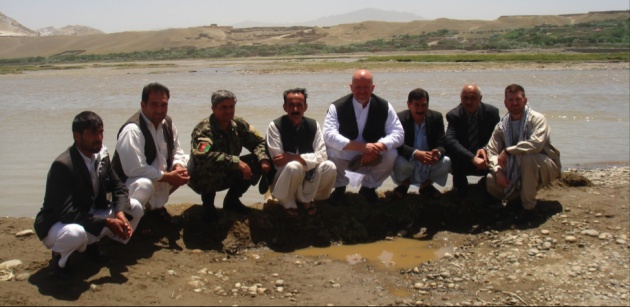
The response of Global Impact’s member charities to the Pakistan floods of 2010 amazed me. I was in Afghanistan at the time and the impact of the floods was felt across the whole region. It was Pakistan's worst flooding in nearly a century. Nearly 14 million people were affected and at least 1,600 died.
Twenty of Global Impact's charity partners immediately began helping the Pakistani people with emergency relief. Among these nonprofits were UNICEF, AmeriCares, Doctors Without Borders, Lutheran World Relief and the American Jewish World Service. It is very impressive that Global Impact supports such diverse charities and is a common link.
FA: What role do you think U.S. corporations and the private sector can play in the developing world? How can business and philanthropy mutually create an environment of corporate social responsibility and ‘Sustainable Philanthropy’ that benefits everyone?
EZ: Great question. As I said earlier, there is a “sweet spot” or crossroads where business interests and philanthropy can meet. If you can hit that sweet spot, everybody benefits: companies, their investors, and the world’s most vulnerable people, creating sustainable philanthropy. Global Impact is an expert at bringing the private-sector and nonprofit charities together as a team for success in this way. There are many examples. You can find them easily on the Global Impact website.
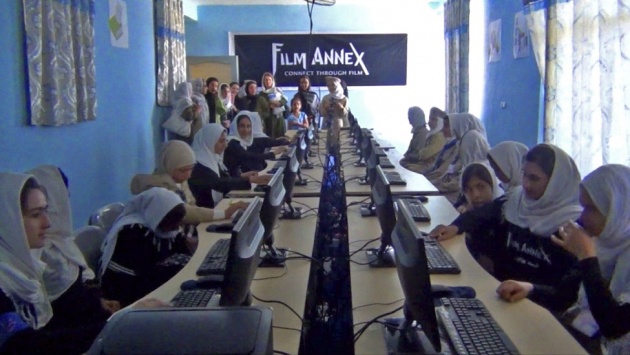
Another good example of sustainable philanthropy is the work of Film Annex and TIME Magazine Top 100 Afghan IT entrepreneur Roya Mahboob. Their Women’s Annex Foundation and Afghan Development Project builds Internet classrooms in Afghanistan. As a result, Afghan kids can learn and travel the world via the Internet in ways they could never dream of otherwise. It is a good model for the intersection of business and philanthropy where everybody benefits.
FA: How can charity and corporate workplace giving campaigns benefit a corporation’s employees and improve the bottom line for shareholders?
EZ: Most successful companies know that corporate giving campaigns are good for employee morale and productivity. Most people want to feel like they make some difference in the world besides just going to work every day. They want to leave a legacy that is more than just their bank account and investments. And they want their contributions to have maximum effect.
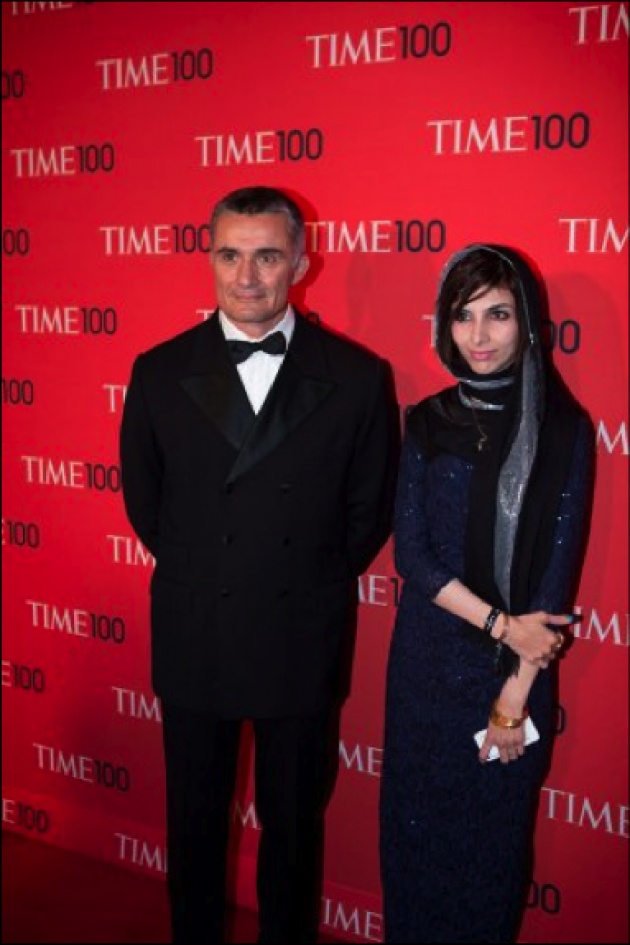
But often these employees don’t know where to start. So their charitable impulses can be left unfulfilled through simple inertia or lack of a target. If a company can help guide its employees to an easy way of charitable giving through workplace campaigns, it helps build loyalty, satisfaction and fulfillment in the workplace. Everyone knows that a loyal, satisfied and fulfilled employee is a better one. This is one way that the private-sector can achieve tangible benefit from workplace giving campaigns.
FA: What is your favorite success story of a Global Impact program supported by the private sector?
EZ: I like the story recently told by George Akiki, Cisco Systems’ Senior Director of Corporate Affairs. Mr. Akiki said that “Global Impact made our goal of raising money for rebuilding and relief in Lebanon a reality. Their administrative partnership helped five corporations give over $1.7 million to provide young people with job skills, assist with housing, train teachers, and educate communities. By focusing on one area and working together, the impact of our work made a profound difference.”
I love that story. Cisco Systems benefits, its employees benefit, and the people of Lebanon get a jumpstart in education and development. This comes back full-circle to help Cisco and its shareholders too, since Lebanon becomes a better market for Cisco to operate in and gain market share.
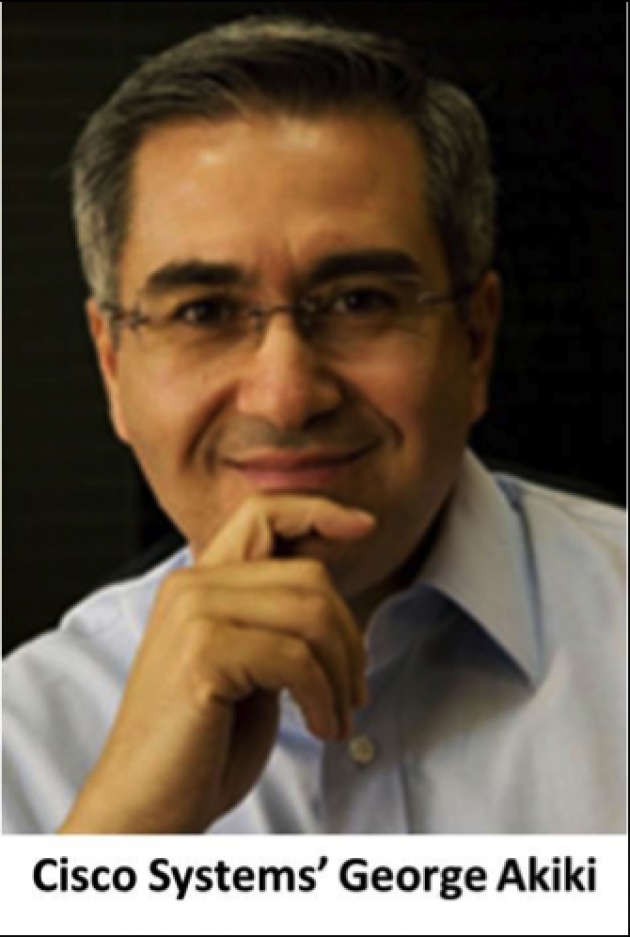
This is what world’s vulnerable people need most: a helping hand so they can help themselves. By brokering global philanthropy for the private-sector, Global Impact gives strength to that helping hand and everybody benefits.
Learn more about Sustainable Philanthropy and private sector initiatives at Global Impact’s website.



